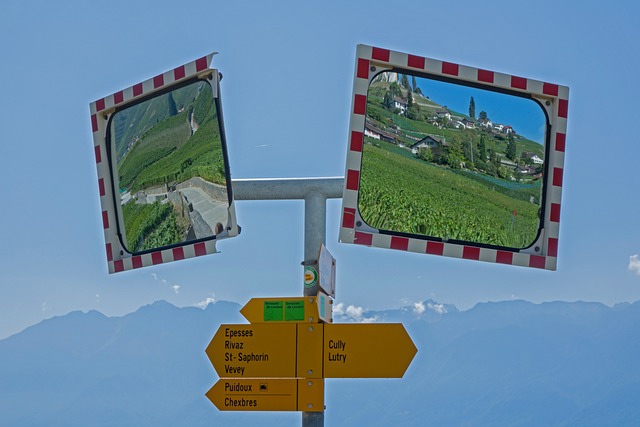Beyond the Basics: How Tour Guides Create Memorable Experiences
Tourism has always played a crucial role in the economy and the development of cultures across the globe. At the heart of many travel experiences are tour guides, the individuals who navigate countless visitors through rich histories, breathtaking sights, and localized knowledge. While a basic tour might involve simply relaying facts and figures, the most skilled guides go far beyond this superficial approach, creating a tapestry of unforgettable memories for travelers.
The Role of a Tour Guide
A tour guide is more than just a person who leads a group from one site to another. They serve as educators, entertainers, and cultural ambassadors. Their primary goal is to enhance the travelers’ experience and ensure that it transcends mere sightseeing. Here are some pivotal components that contribute to their effectiveness:
Storytelling
At the core of a memorable tour lies the art of storytelling. A good guide weaves narratives that resonate with the audience, bringing historical facts and local lore alive. They personalize stories with emotional depth, embedding them within the contexts of human experience. This approach transforms a mundane visit to a monument into an impactful moment filled with human tragedy, triumph, and insights that linger far beyond the tour itself.
Engagement
Effective engagement is paramount in creating memorable experiences. A skilled tour guide recognizes the diverse backgrounds and interests of their group members. They encourage questions, facilitate discussions, and actively involve travelers in the experience. This two-way dialogue breaks down barriers and builds a sense of camaraderie among the participants, making the tour not just an experience but a shared journey.
Customization
Customizing experiences is another hallmark of excellent tour guides. They understand that each tour group is unique, with different preferences, interests, and energy levels. Some might be eager for in-depth historical knowledge, while others seek culinary adventures or artistic insights. A guide who can tailor the itinerary and adapt the content on the fly demonstrates awareness and responsiveness, catering to the audience’s desires and needs.
The Importance of Local Knowledge
An in-depth understanding of local culture, history, and geography is indispensable for any tour guide. This knowledge provides context and depth to the narratives they share. But it’s not just about delivering factual information; it’s about providing connections to the present, highlighting current events, traditions, and how they relate to the historical context.
A guide who is well-versed in local customs can introduce travelers to authentic experiences, from cuisine to social etiquette, enhancing travelers’ appreciation of the places they visit. This cultural immersion deepens the tour experience, allowing for genuine connections with locals and enhancing understanding.
The Impact of Personality and Passion
The personality traits of a tour guide play a significant role in shaping a tourist’s journey. A passionate guide radiates enthusiasm, which can be infectious. Their energy can transform a simple tour into an exhilarating adventure, prompting laughter, curiosity, and genuine interest.
Empathy is another essential character trait. A guide with emotional intelligence can read the crowd, identifying moments that may need more sensitivity or excitement. They can sense when someone is disengaged, allowing them to pivot and refocus attention to reignite enthusiasm.
The Use of Technology
In today’s digital age, many tour guides are incorporating technology to bolster the experience. Audio devices can enhance sound quality, enabling travelers to hear and engage better, especially in crowded environments. Smartphone apps may enhance learning trajectories, providing additional multimedia content that sparks interest.
Virtual reality (VR) and augmented reality (AR) are also slowly entering the tourism space. Guided tours that utilize VR can transport participants to significant historical moments, allowing them to visualize events as they were, creating an immersive experience that is simply unattainable through traditional methods.
Creating Connections Through Shared Experiences
Memorable experiences are often born from connections. A tour guide’s role includes facilitating interactions not just between them and the tourists but among the group members themselves. By fostering a welcoming atmosphere where travelers feel comfortable sharing their thoughts and experiences, guides encourage bonding that enriches the journey.
Shared activities, such as group demonstrations of local crafts or cooking classes, can go a long way in creating unique memories. Beyond mere sightseeing, guides foster a sense of belonging and community that resonates long after the tour ends.
Feedback and Continuous Improvement
A hallmark of an excellent tour guide is their commitment to improvement through feedback. After each tour, many guides take the time to reflect on participants’ comments—what worked well, what could have been done better, and what might enhance the experience in future tours.
Constructive criticism helps guides evolve, understanding customer expectations, and developing their skills to create even more memorable experiences in subsequent tours.
Conclusion: The Lasting Legacy of a Tour Guide
Tour guides are often the unsung heroes of the travel experience. They pack years of knowledge, skill, and passion into each tour, richly weaving together facts and narratives to paint a vivid picture of the destination. By connecting with travelers on a personal level, adapting to audiences, and leveraging technology, they elevate the journey from mere observation to immersive exploration.
Whether it’s through captivating storytelling, shared experiences, or an inherent love for the places they represent, professional tour guides create lasting memories that stay with travelers long after they return home. They remind us that travel is not solely about the destinations we visit but the experiences we forge along the way.


